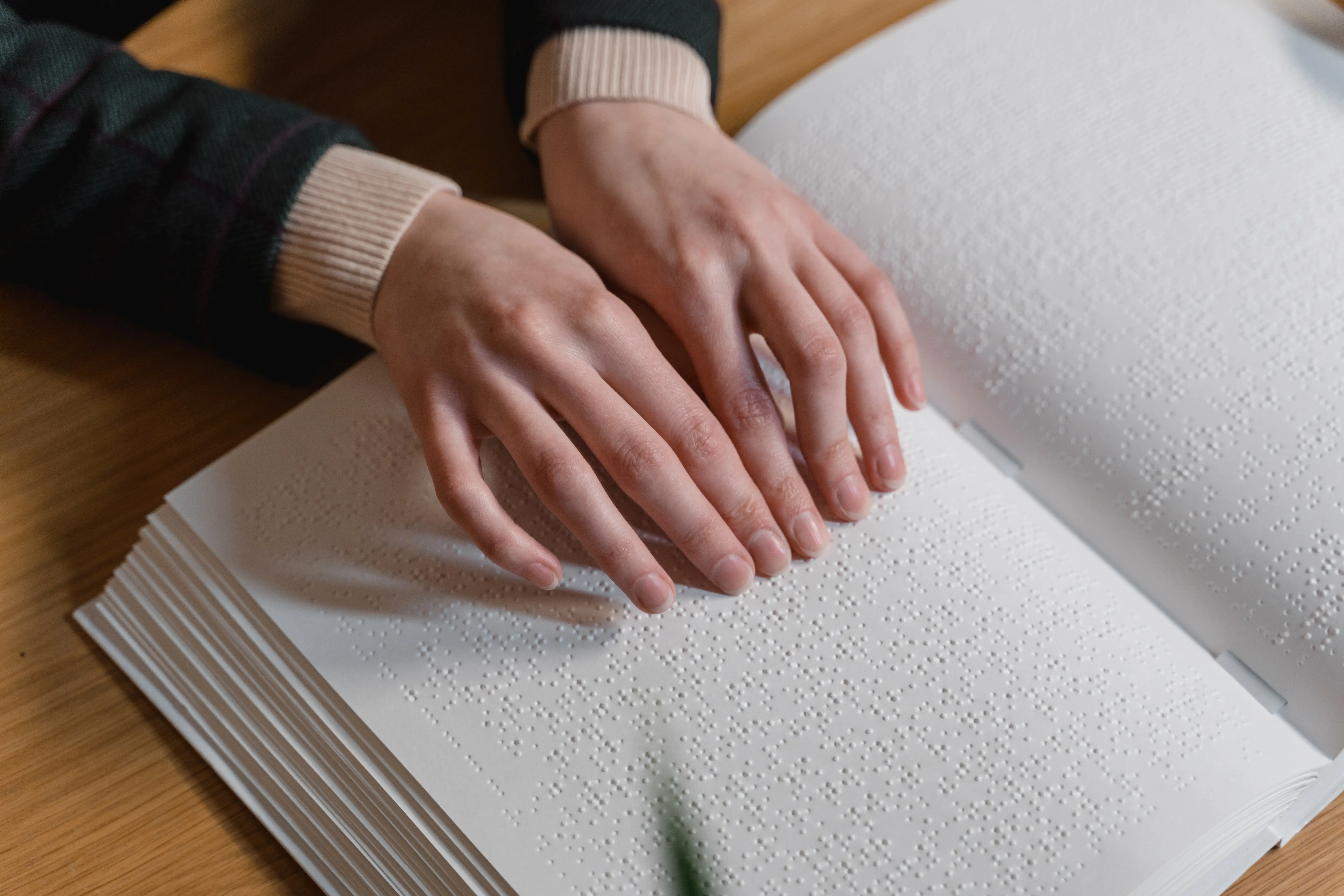Sample by My Essay Writer

Question 1
If I had to live without one of my senses, I would choose to live without the sense of smell. There are five major senses in the human body. These include the sense of taste, sight, smell, touch, and sight. It is my opinion that the sense of smell can be compensated by all the other senses should they be trained to work together. The sense of sight is achieved through the employ of the eye. The sense of sight entails the visual perception of all the objects that surround us. The sense of sight allows independence and innovation. When an individual is born, their first contact with their surroundings is through the perception of the light in their visions. It is from the light that the individual can identify the objects around them. Without sight, every other sense will be curtailed since the efficiencies of the other senses depend on the efficiency of the sight. Without sight, I would be forced to depend on the individuals around me for the most basic of duties.
Without the sense of touch, I would not be able to successfully perceive the objects around me. The interpretation of the objects I see is subject to the sense of touch. The sense of touch allows the determination of the differences between two objects. For instance, one may see an object that looks like another similar such as is the case between the tortoise shell and a stone. It is the sense of touch that will enable the determination of the differences between the objects seen by the eye. There are also objects which are not readily perceptible through the employ of smell. Objects such as stone depend largely on sight and touch which comprise two of the indispensable senses. [“Write my essay for me?” Get help here.]
I cannot do without the sense of hearing because it enhances my perception of the environment around me. Hearing entails the ability to perceive sounds through vibrations. Hearing enhances the efficiency of the response mechanism that is initiated by the subject individual. The pinna of the ear focuses the vibrations picked from the environment to the eardrums. Hearing serves to indicate the environment that one is in and thus prevents avoidable accidents. For instance, in a park one is bound to be careful in their movements lest they rattle the marauding animals that live in the setting. Therefore, hearing is important in influencing human behavior, and therefore, I would not be able to successfully live without it.
Lastly, the sense of taste is important in the human body. Taste as a sense entails the ability to discern a variety of foods and drinks. Taste comprises a significant part of the nutrition process. Without the sense of taste, I would not be able to differentiate between the different types of food around me. This would lead to food poisoning which threatens the stability of the body. The sense of smell can be overcome through the successful functioning of the other senses in the body. It is possible for one to perceive their environments through the employ of taste, touch, sight, and hearing.

Question 2
Sight comprises a significant sense of the body. It is the most important sense given that it enables the creation of one’s reality. An individual becomes and engages in the activities that they observe in their surroundings. Our character is essentially molded by the factors and components that we see in the growth process (Grison, Heatherton, & Gazzanigal, 2015). When one is without sight, their realities are limited to the perceptions they derive from other senses. Therefore, they learn to adapt to their surroundings through the employ of the other senses. Over time they adapt to these mechanisms and lead fully satisfied lives in the knowledge that the other senses succinctly address the nature of their environments.[Need an essay writing service? Find help here.]
Information perception in the environment is guided by the expectations that one has on their environment. The blind build and live within the perceptions that they have created for themselves. Given a chance to regain my sight, I would decline the initiative. Like Virgil, my perception of life and emotional balance would largely be influenced by what the senses around me would be dictating (Sparks, 2013). I would be guided by my sense of hearing, touch, taste and smell. My realities would be limited to the concepts that surround me. The human brain processes readily that which it is familiar with. Perception influences the brain processes and determines the responses that the brain extends to external stimuli. The brain perceives light through a process known as photo-transduction.
The process entails the conversion of light energy into impulses which can readily be understood by the brain. An individual who has not had prior experiences with light in the developmental process may inspire belligerent responses from the brain upon exposure. It is most likely that my emotions will be in turmoil should I regain the sight senses. This is because I will not be able to succinctly organize visual information from the objects I see. Vision will enable me to see objects that I had initially had contact with through the non-visual senses. My brain will already have a perception of the object which may not reflect the true nature of the object (Grison, Heatherton, & Gazzanigal, 2015). This inspires confusion in the brain and culminates in emotional turmoil. Likewise, I would not wish to regain sight because I may not be able to perceive an object as a separate entity from its surroundings. Visual perception begins with the ability to discern objects separately from their collective environments. Motion perception may also comprise a challenge given that previously the brain had been employing senses such as smell and hearing to discern the movements of the objects around me.
Question 3

Virgil’s final blindness was indeed a blessing to him. As a result of the final blindness, Virgil was able to return to normalcy which had been hindered when he regained sight. On attaining vision, Virgil was repeatedly conflicted, and this affected his relationships with the individuals who were around him (Grison, Heatherton, & Gazzanigal, 2015). Overtime, this culminated in overall discomfort for Virgil. Vision interfered with his emotional stability. He began aligning himself to things that intrigued him and overlooked the things that had initially formed his realities. This only served to distance him further from the relationships he had created in blindness. When he was able to return to normalcy all the conflicts that had prevailed when he regained sight were mitigated. He was further able to reunite with Amy when he regained sight.
A return to the familiar world comprised a significant advantage to Virgil. To begin with, he was able to overcome the perception shock that prevailed when he had regained sight of the objects that surrounded him. Sight necessitated the need to learn to integrate the components that surrounded him afresh. This conflicted his initial perception of the environment around him. When one is blind, their perception of the environment is greatly curtailed by the auditory and touch senses. One grows up in the idea that what they perceive to be true is the overall truth for every other individual (Grison, Heatherton, & Gazzanigal, 2015). This shapes the way they interact with the individuals around them and further influences the way they respond to the stimuli around them. Therefore, on introduction to new stimuli, an individual may lack the ability to succinctly respond. This results in an internal conflict which is projected through conflicts. [Click Essay Writer to order your essay]
When Virgil regained final blindness, he was able to practice control over his emotions. Perception influences one’s emotions and therefore it is a gradual process (Grison, Heatherton, & Gazzanigal, 2015). When Virgil was introduced to light, his expectations were not satisfied which inspired confusion in him. It is this that led to the relationship conflicts between him and his family. In regaining final blindness, Virgil lived within the realities that he had initially constructed for himself. Throughout his developmental process, he was able to define his existence based on the premises that his senses had created for him. Introduction into new environments greatly shocked Virgil. He had not been gradually prepared for the forms of objects that he observed on regaining sight. Objects should be manifested according to the expectations of the involved individual to lessen the emotional impacts that result from sight. Had it been that Virgil was still in his infant stage, then he would have been able to gradually adapt to his new environment. The brain receptors would have been more aligned towards the learning of new features that had initially been absent (Grison, Heatherton, & Gazzanigal, 2015). However, upon adulthood, it is hard to achieve the same given that the learning initiatives of the brain are curtailed.
References
Grison, S., Heatherton, T., & Gazzanigal, M. (2015). Psychology in Your Your Life. New York: W. W. Norton & Company.
Sparks, N. (2013). At First Sight. New York: Grand Central Publishing.






